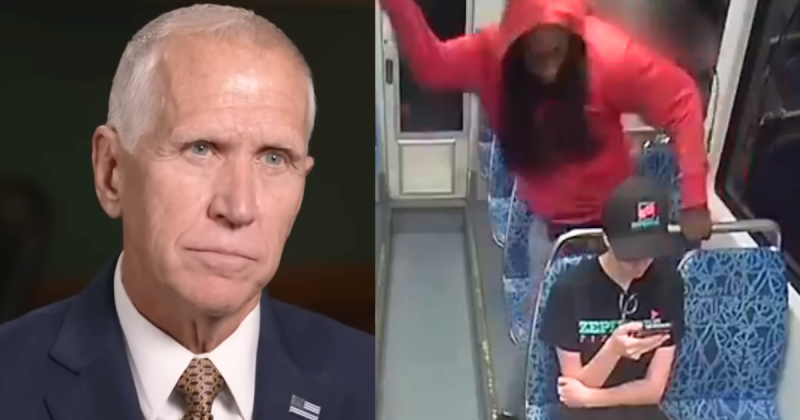North Carolina Sen. Thom Tillis (R) is urging caution following the tragic killing of 23-year-old Ukrainian refugee Iryna Zarutska on a Charlotte Lynx Blue Line train, highlighting a growing rift within the Republican Party over federal involvement in urban crime.
President Trump has repeatedly advocated for deploying federal resources to cities he considers unsafe.
Following a recent operation in Washington, D.C., which included National Guard troops, FBI agents and other federal personnel, Trump announced that Memphis, Tennessee, would be the next focus of his law-and-order initiatives.
He has also suggested similar actions could target other major cities.
Tillis, however, emphasized that Charlotte does not yet warrant federal intervention.
Speaking to Fox News, he said, “There are a lot of cities that we should be going to before Charlotte. And I, for one, don’t think that we should be the nation’s police force, because, you know what happens? We’re going to mask the failure of Democrat leaders that are making their cities less safe.”
He noted that local officials have been implementing measures, including enhanced safety on public transit and argued that federal involvement could constitute an overreach.
North Carolina Sen. Ted Budd (R), by contrast, criticized local Democratic leadership, arguing their policies have created unsafe conditions.
He cited cashless bail programs, lenient enforcement of drug laws and insufficient attention to homelessness.
“Being negligent like those local governments have been invites greater rule,” Budd said. “That’s why the feds are being sent in Chicago and Washington, D.C.”
Zarutska’s death has drawn national attention to crime in Charlotte, particularly on public transportation, and has intensified pressure on local authorities to enforce safety measures, Trending Politics reports.
Crime data indicate a rise in violent incidents on Charlotte’s public transit, even as overall violent crime dropped roughly 25 percent in the first half of 2025.
City officials maintain that safety programs remain active, but Zarutska’s murder has amplified scrutiny of local enforcement and safety policies.
Authorities report that Brown has a criminal history dating back nearly two decades, with prior arrests for armed robbery, burglary, larceny and misuse of the 911 system.
In 2015, he was sentenced to five years in prison for robbery with a dangerous weapon but was released earlier this year on cashless bail.
Brown also has documented mental health issues, including paranoid schizophrenia, which authorities say may have contributed to his behavior leading up to Zarutska’s death.
He is currently facing first-degree murder charges and is undergoing a 60-day mental competency evaluation.
Observers note the disagreement between Tillis and Budd reflects a wider split within the GOP.
Some leaders call for restraint, warning that federal overreach could mask local failures, while others aligned with Trump’s MAGA base advocate decisive federal action to restore law and order.
Zarutska’s death underscores the human cost at the center of this political debate, highlighting the stakes of policy decisions in urban centers.
As the investigation continues, Charlotte officials and residents are closely watching whether federal authorities will intervene and what measures will be implemented to ensure public safety.
Zarutska’s murder has drawn national attention, framing a broader debate on urban crime, local governance and federal responsibility.

